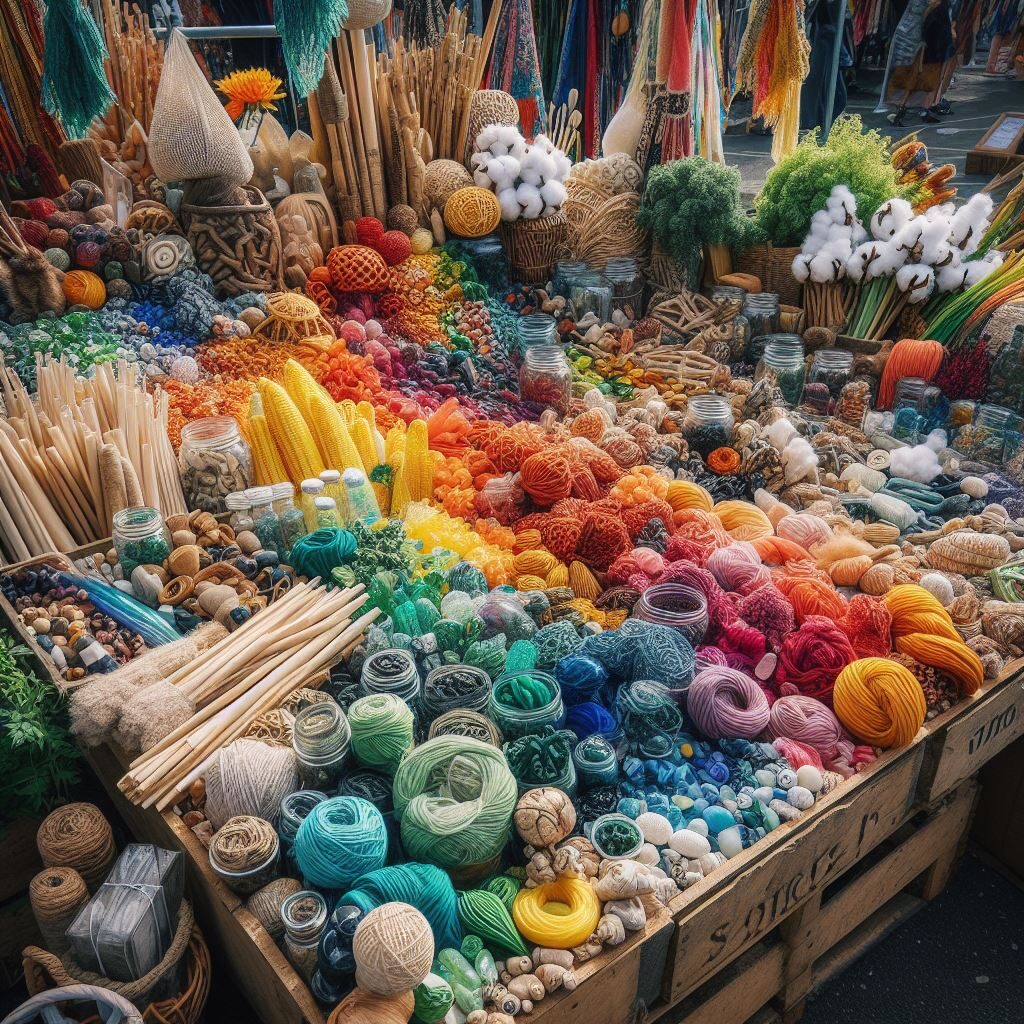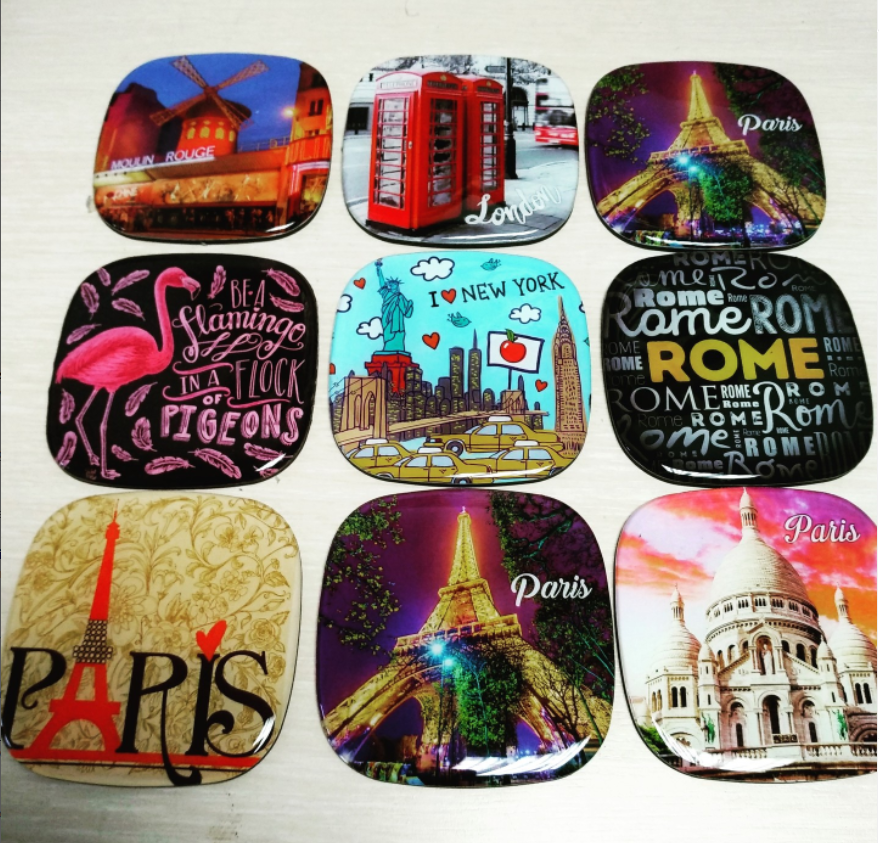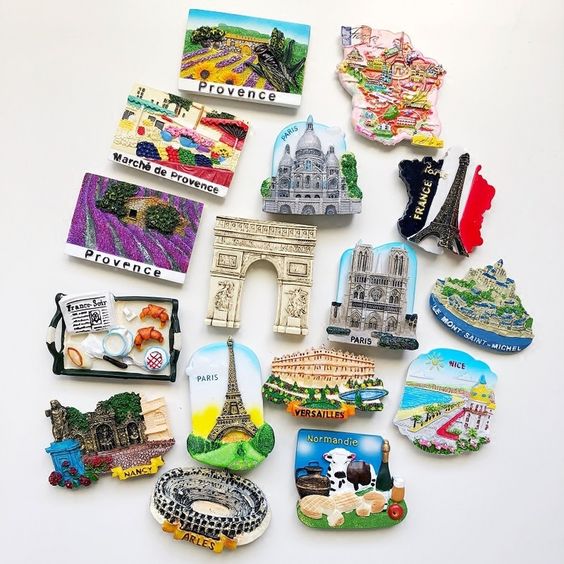In today’s globalized world, souvenirs serve as tangible reminders of travel experiences, connecting us to different cultures and places. However, the souvenir industry often overlooks its environmental impact. Mass production of souvenirs frequently relies on unsustainable materials and practices, contributing to pollution, resource depletion, and ecological damage.
The Rise of Eco-conscious Consumers and the Souvenir Industry

The tide is turning as consumers become increasingly aware of the environmental consequences of their purchases. This shift in consumer preference, particularly among younger generations, is putting pressure on various industries to adopt more sustainable practices. The souvenir industry is no exception. Travelers are actively seeking souvenirs that reflect not just the cultural essence of a destination, but also its commitment to environmental responsibility.
Shifting Consumer Preferences
Modern travelers are looking for souvenirs that tell a story beyond the typical tourist trinket. They are drawn to unique, handcrafted items that represent the local culture and are made with sustainability in mind. This shift in preference presents a significant opportunity for souvenir craft producers to embrace eco-friendly practices and cater to this growing market segment.
The Environmental Cost of Souvenirs
The traditional souvenir industry often relies on unsustainable materials like plastic, synthetic fabrics, and unsustainable wood. These materials have a significant environmental footprint throughout their lifecycle, from resource extraction and production to disposal. Furthermore, mass production processes frequently involve high energy consumption, chemical use, and waste generation.
Sustainable Practices Throughout the Souvenir Craft Production Chain

Implementing sustainable practices throughout the souvenir craft production chain is crucial for minimizing environmental impact. This involves focusing on sourcing, production techniques, waste reduction, and packaging.
Sourcing Sustainable Materials
Souvenir craft producers can make a significant difference by sourcing sustainable materials. This could include using natural, biodegradable materials like bamboo, recycled paper, organic cotton, or locally sourced wood from sustainably managed forests. Additionally, utilizing upcycled materials like discarded fabrics or glass adds a unique touch while minimizing reliance on virgin resources
Implementing Eco-friendly Production Techniques
Sustainable production techniques encompass various strategies. Utilizing energy-efficient equipment and renewable energy sources like solar power can significantly reduce the environmental footprint. Furthermore, employing low-impact dyes and minimizing water usage during production are crucial steps towards eco-friendly practices.
Reducing Waste and Promoting Upcycling
Minimizing waste generation is a key aspect of sustainable production. This can be achieved through careful material selection, employing production techniques that minimize scraps, and exploring ways to repurpose production leftovers into new items. Promoting upcycling allows artisans to transform discarded materials into beautiful and unique souvenirs, adding value and reducing waste.
Utilizing Sustainable Packaging
Sustainable packaging solutions are essential for completing the eco-friendly approach. Biodegradable packaging materials like bamboo or recycled paper minimize waste generation after purchase. Additionally, minimizing packaging size and opting for reusable packaging options further reduce the environmental impact.
The Benefits of Sustainable Souvenir Craft Production

Embracing sustainable practices in souvenir craft production offers a multitude of benefits, impacting both the environment and the business itself.
Environmental Advantages
Sustainable production minimizes resource depletion, reduces pollution, and lowers the carbon footprint of the souvenir industry. This not only protects the environment for future generations but also preserves the natural beauty of destinations that rely on tourism.
Economic Benefits
Sustainable practices can lead to significant cost savings in the long run. Utilizing energy-efficient equipment and minimizing waste reduce production costs. Furthermore, sustainable souvenirs often command premium prices, attracting eco-conscious consumers and boosting profitability.
Attracting Eco-conscious Importers
By adopting sustainable practices, souvenir craft producers can position themselves as attractive partners for eco-conscious importers. This opens doors to new markets and distribution channels, expanding the reach of their products and increasing sales potential.
Building Brand Reputation and Customer Loyalty
Sustainability is a powerful marketing tool. Consumers are increasingly drawn to brands that demonstrate environmental responsibility. Souvenir craft producers who embrace sustainable practices can build a strong brand reputation for eco-consciousness, attracting loyal customers who value their commitment to the environment.
Challenges and Solutions in Implementing Sustainable Practices

While the benefits of sustainable souvenir craft production are numerous, there are challenges to consider.
Higher Initial Costs
Implementing sustainable practices may involve upfront investments in new equipment, sourcing sustainable materials, and potentially redesigning production processes. However, these costs can be offset by long-term savings on energy consumption and waste disposal. Additionally, the premium pricing for sustainable souvenirs can help recoup initial investments.
Limited Availability of Sustainable Materials
Sourcing sustainable materials can be a challenge, especially in regions with limited access to them. Building partnerships with suppliers who specialize in sustainable materials can be a solution. Additionally, collaborating with other craft producers in the region can lead to bulk purchases of sustainable materials, reducing costs and ensuring a steady supply.
Building Partnerships with Sustainable Suppliers

Developing strong relationships with suppliers who prioritize sustainability is crucial. Working with suppliers who offer eco-friendly materials, energy-efficient equipment, and sustainable packaging options allows souvenir craft producers to create a truly sustainable production chain.
The Future of Sustainable Souvenir Craft Production
The future of souvenir craft production lies in continuous innovation and collaboration, coupled with consumer education and awareness.
Continuous Innovation and Collaboration
The souvenir industry needs to embrace continuous innovation in sustainable practices. This could involve exploring new sustainable materials, developing more energy-efficient production techniques, and finding creative ways to minimize waste. Collaboration among souvenir craft producers, researchers, and environmental organizations can accelerate this process and lead to groundbreaking advancements.
Education and Consumer Awareness
Educating consumers about the environmental impact of souvenirs and the benefits of sustainable alternatives is essential. Souvenir craft producers can play a vital role in this process by clearly communicating their commitment to sustainability through product labeling, marketing materials, and educational campaigns.
By embracing sustainable practices, souvenir craft producers can create a positive impact on the environment, attract eco-conscious consumers and importers, and build a thriving business for the future. This shift towards sustainability ensures that souvenirs continue to serve as cherished reminders of travel experiences, while also protecting the beauty of the destinations we visit and the planet we share.
FAQs
1. Are sustainable souvenirs more expensive?
Sustainable souvenirs may have a slightly higher initial cost due to the use of eco-friendly materials and production techniques. However, these costs are often offset by long-term savings and the ability to command premium prices from eco-conscious consumers.
2. How can I identify sustainable souvenirs?
Look for labels or marketing materials that highlight the use of sustainable materials and eco-friendly production methods. Some souvenir producers may also have certifications from independent organizations that verify their sustainability practices.
3. What can I do as a traveler to support sustainable souvenirs?
Seek out shops and stalls that sell handcrafted souvenirs made with sustainable materials. Ask questions about the production process and look for producers who are transparent about their commitment to sustainability.
4. What are the benefits of buying sustainable souvenirs?
By purchasing sustainable souvenirs, you are supporting businesses that prioritize environmental responsibility. This helps minimize the environmental impact of the souvenir industry and contributes to a more sustainable future for travel destinations.
5. How can souvenir craft producers get started with sustainable practices?
Research available sustainable materials and production techniques. Connect with suppliers who specialize in eco-friendly options. Start by implementing small changes and gradually integrate sustainability into your entire production process.
- Resin vs. Ceramic: A Data-Driven B2B Comparison for High-Volume Souvenir Orders - February 4, 2026
- AQL 2.5 vs. 4.0: Defining Acceptable Defect Thresholds for Mass-Produced Tourist Magnets - January 28, 2026
- The Importer’s Guide to Total Landed Cost (TLC): Calculating the Real Price of Resin Souvenirs from Quanzhou - January 21, 2026




